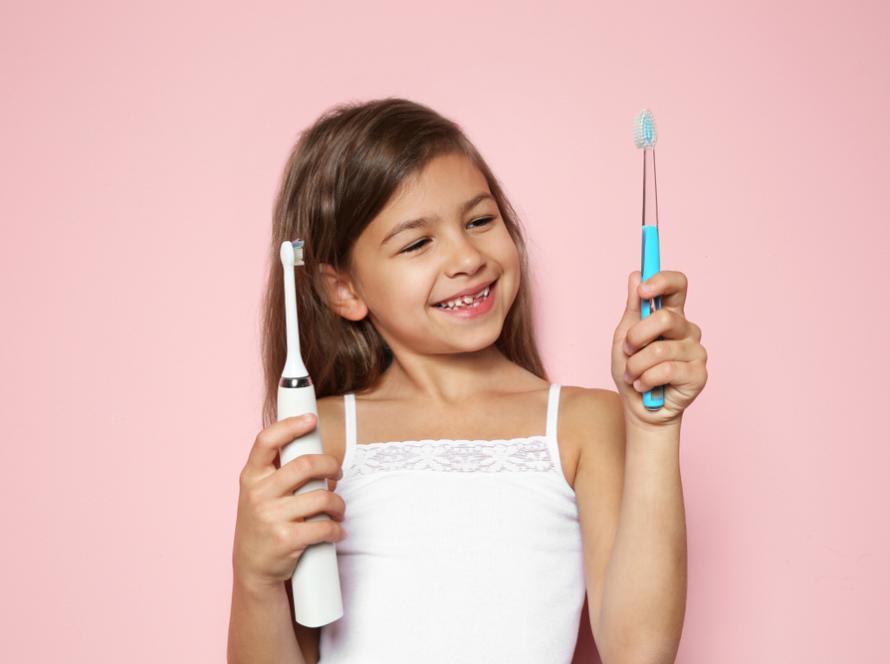Ensuring kids have healthy smiles is a priority for parents, and one key element in kids’ dental care is fluoride. To address common concerns, we’ve explored the latest information on fluoride use for children. Woodlawn Kids Dental offers expert insights and commentary on frequently asked questions about fluoride and how it contributes to children’s oral hygiene. (Source: healthychildren.org, Fluoride for Children: Parent FAQs, August 30, 2024, Source-American Academy of Pediatrics (Copyright @ 2024), https://www.healthychildren.org/English/healthy-living/oral-health/Pages/FAQ-Fluoride-and-Children.aspx ).
Fluoride is vital in preventing tooth decay, making it a fundamental part of children’s dental health. However, parents often have questions regarding its safety and application, especially concerning drinking water, toothpaste, and customized dental treatments for kids. Below, we address some of the most common inquiries to help parents make informed decisions about their child’s oral hygiene.
“Parents are often concerned about the balance between effective cavity prevention and safety when it comes to fluoride. At Woodlawn Kids Dental, we believe in providing clear, evidence-based information to ensure every parent feels confident in their child’s dental care routine.”
Why Do Children Need Fluoride?
Fluoride is essential because it strengthens tooth enamel and helps prevent cavities. When teeth are exposed to fluoride, either through drinking water or dental products, they develop increased resistance to the acids produced by bacteria.
“A strong enamel is essential for maintaining a healthy smile. Fluoride’s role in hardening enamel means fewer cavities, less discomfort, and overall better oral health for kids. By understanding its benefits, parents can help ensure long-term oral hygiene for their children.” — Woodlawn Kids Dental.
Is Fluoride in Drinking Water Safe for My Children?
The addition of fluoride to public water supplies effectively prevents tooth decay. The levels are carefully regulated to ensure safety, and decades of research support its benefits.
“Water fluoridation is one of the most effective measures for public health against cavities. At Woodlawn Kids Dental, we encourage parents to understand that the fluoride levels in tap water are optimized to strengthen children’s teeth without posing health risks. Trusting the science can lead to healthier smiles.” — Woodlawn Kids Dental.
Is Fluoride Linked to IQ?
There has been some concern about a potential link between fluoride exposure and IQ levels. However, current scientific research does not conclusively support this claim, and health organizations like the American Dental Association (ADA) maintain that fluoride is safe and beneficial at recommended levels.
“It’s understandable for parents to be cautious about what their children are exposed to, but it’s important to rely on credible, scientific research. Fluoride’s benefits in preventing tooth decay far outweigh unsubstantiated concerns. We advocate for open discussions based on facts to ensure that parents feel reassured about their kids’ dental health.” — Woodlawn Kids Dental.
When Should I Include Fluoride Toothpaste for My Kid’s Oral Hygiene Routine?
Children should begin using fluoride toothpaste as soon as their first tooth appears. It’s recommended to use a tiny smear for children under three years old and a pea-sized amount for those aged three and above.
“Starting early with the right amount of fluoride toothpaste sets the stage for lifelong dental hygiene habits. We always remind parents to supervise brushing to make sure kids use the correct amount and learn proper brushing techniques. Good habits begin young, and fluoride toothpaste is an essential part of that journey.” — Woodlawn Kids Dental.
What If We Live in a Community Where the Water Is Not Fluoridated? What Can We Do?
If your water supply does not contain fluoride, there are alternative ways to ensure children receive adequate fluoride. Options include fluoride supplements or fluoride treatments from a children’s dentist.
“Customized dental treatment for kids can include tailored fluoride applications to address individual needs, especially in areas without fluoridated water. Regular check-ups allow dentists to determine the best approach for each child, ensuring they receive the right protection.” — Woodlawn Kids Dental.
Should My Child Get Fluoride Varnish?
Fluoride varnish is a concentrated fluoride treatment that can be applied by a dentist. It is especially effective for young children who are at higher risk of developing cavities. The varnish hardens on the tooth surface, making it less likely to be washed away by saliva or food.
“Fluoride varnish is an excellent preventative measure, especially for younger children who may struggle with consistent brushing habits. It provides an additional layer of defense against cavities, which is why we often recommend it as part of our comprehensive approach to kids dental care.” — Woodlawn Kids Dental.
What Should Parents Be Aware of Regarding Fluoride While Breastfeeding or Preparing Infant Formula?
The fluoride intake of infants can depend on various factors, including the fluoride content of the water used to prepare formula. The article suggests parents consult with their child’s dentist to understand the best approach.
“Breastfeeding and formula feeding are sensitive topics, and we aim to offer guidance that respects parents’ choices while ensuring infants’ dental health. Consulting with a children’s dentist can help parents navigate any concerns and make sure their child gets the right amount of fluoride.” — Woodlawn Kids Dental.
What Is Dental Fluorosis, and Will Fluoridated Water Mixed with Infant Formula Increase the Risk?
Dental fluorosis is a condition that leads to the appearance of white spots or streaks on teeth. It can occur when children consume excessive fluoride while their teeth are still developing. Mild cases are typically cosmetic and do not affect the function of the teeth.
“Fluorosis is often misunderstood. Mild cases are not harmful and are usually only noticeable to dental professionals. Parents concerned about the risk can consult their child’s dentist to ensure fluoride exposure is balanced and appropriate, which is especially important during early childhood.” — Woodlawn Kids Dental.
Should Pregnant People Switch to Bottled Water?
The article clarifies that there is no need for pregnant people to switch to bottled water as fluoride at recommended levels in tap water is safe. Proper oral hygiene practices during pregnancy are essential for both the mother and the baby.
“It is vital to maintain a balanced diet and practice good oral hygiene during pregnancy. While there’s no need to avoid tap water, expecting parents should focus on ensuring they’re maintaining their own dental health, as this can have long-term benefits for their baby’s oral development. We always encourage prenatal dental care discussions to address any questions about fluoride.” — Woodlawn Kids Dental.
Fluoride is a vital part of maintaining healthy smiles for children. Understanding how to safely incorporate it into kids’ oral hygiene routines can prevent cavities and promote strong teeth. Parents are encouraged to seek information and consult their children’s dentists to make the best decisions for their child’s dental health.
“All children deserve bright, healthy smiles, and fluoride is essential for this. At Woodlawn Kids Dental, we’re here to guide parents every step of the way, ensuring they have the knowledge and confidence to take care of their children’s dental needs.” — Woodlawn Kids Dental.


